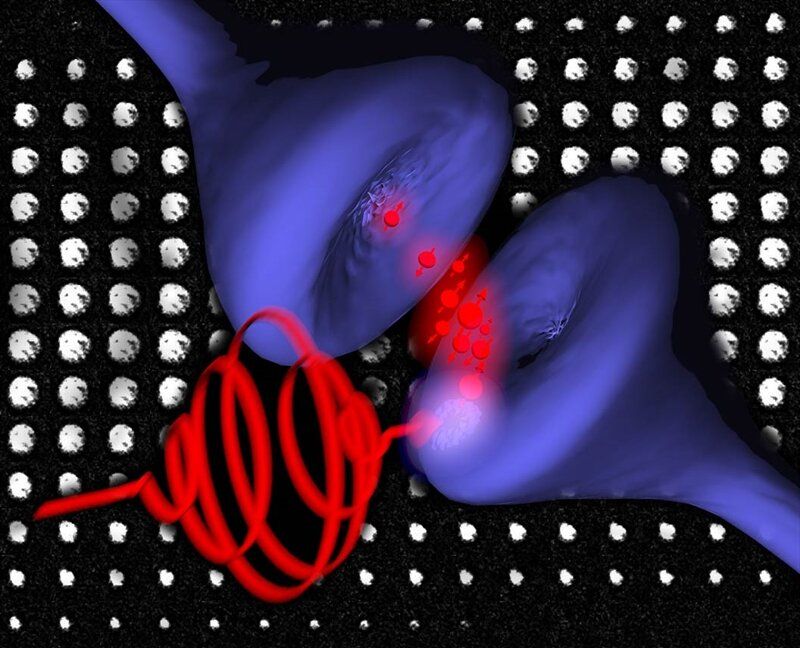The power consumption of data centers around the world is increasing. This creates a high demand for new technologies that could lead to energy-efficient computers. In a new study, physicists at Radboud University have demonstrated that this could also be achieved by using chips whose operation is inspired by that of the human brain. The study was published in the scientific journal Applied Physics Letters on 16 May.
Compared to our current computers, the human brain uses a fraction of the energy to process the same amount of data. This is possible due to the fact that our brains can process data in parallel and store it as well by making connections stronger or weaker.
“We wanted to see if we could implement this property of plasticity in an artificial system and combine it with the rapid and energy-efficient technique to control magnetism using light, which has been applied for some time already,” say Johan Mentink and Theo Rasing, both physicists at Radboud University. “This should eventually lead to energy-efficient and smart computers.”
